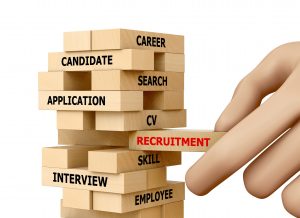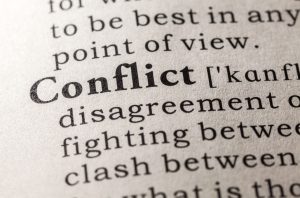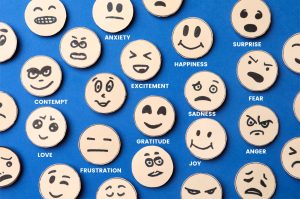One of Danny’s favourite Frank Sinatra numbers “How little we know” includes the following remarkable lyrics:
“How little we know!
How much to discoverHow little we understand what touches off that tingle
That sudden explosion when two tingles intermingleWho cares to define
What chemistry this is?”
These lyrics bring us gently but firmly into the world of mystery.
Friendship in all its many splendored forms is hallmarked by mystery and what some call “magic”.
There are literally thousands of inspirational quotes on friendship that proclaim its praises and wonders. Here are just a few:
“A friend is one that knows you as you are, understands where you have been, accepts what you have become, and still, gently allows you to grow.”
– William Shakespeare
“Don’t walk in front of me… I may not follow
Don’t walk behind me… I may not lead
Walk beside me… just be my friend”
― Albert Camus
“What is a friend? A single soul dwelling in two bodies.”
― Aristotle
“A friend is someone who knows all about you and still loves you.”
― Elbert Hubbard
In his doctoral thesis “Friendship at Work: An Exploration of the Views and Experiences of Senior Managers” (2004), Danny Mcguigan sets out to highlight the following about friendship, especially friendship in the workplace:
- There are as many definitions of friendship as there are people in the world
- It is mysterious, it starts with a “click” or a “spark”
- We do not always make friends, they often happen to us
- Friendship at work, historically (since the industrial revolution) has been resented, despised by wealth creators and even today is frequently discouraged and judged badly in our organisations, big and small
- Friendship at work can spontaneously create engagement, loyalty to the organisation (and its objectives) and can form the primary reason for going to work
- Friendships are healthier and last longer when underpinned by rules, boundaries and limitations
How can a mystery be penetrated?
Best not to try and just to simply wonder at its power and complexity, yet the innocence at its core.
Friendship and Neuroscience.
Sarah McKay tells us that neuroscience has something important to tell us about friendship and with some eye-watering research findings:
“It’s a no-brainer that friendship is an essential ingredient in living a fulfilled life. But it turns out that neuroscience has some pretty compelling evidence for the power of friendship in maintaining brain health and well-being as we get older.”
Neuroscience research shows that being socially connected protects the brain against the risk of developing dementia.
- Women with large social networks (note: this study didn’t include Facebook friends!) have a lower risk of cognitive decline as they age.
- Loneliness is associated with more than double the risk of developing dementia.
- Participating in many different leisure activities builds brain resilience.
How does interacting with people make the brain resilient to aging?
Neuroscientists often talk about “cognitive reserve.” Cognitive reserve refers to how resilient the mind is to damage or decline of the brain. Think of it as a savings account for the functionality of our brain. It’s the ability to build up a resistance to mental decline and disease.
Having a healthy social life naturally involves thinking, feeling, sensing, reasoning and intuition. These mentally stimulating activities build up our reserve of healthy brain cells, and promote the formation of new connections, or synapses, between neurons.
Those good friends of yours are worth nurturing, because friends will help you live longer, too.
A meta-analysis of 148 studies, including 300,000 people studied over seven years, found that people with strong social relationships had an increased likelihood of survival (yep, they were less likely to die) than those with weaker social relationships.
Here’s how loneliness and lack of social connection compares to more well-known risk factors:
- Equivalent to smoking 15 cigarettes a day
- Equivalent to being an alcoholic
- More harmful than not exercising
- Twice as harmful as obesity
Brigham Young University Professor Julianne Holt-Lunstad, lead author on the study, says, “When someone is connected to a group and feels responsibility for other people, that sense of purpose and meaning translates to taking better care of themselves and taking fewer risks”.
Another of the authors, Professor Timothy Smith, points out that modern conveniences and technology can lead some people to think that social networks aren’t necessary.
“We take relationships for granted as humans — we’re like fish that don’t notice the water,” Smith said. “That constant interaction is not only beneficial psychologically but directly to our physical health.”
See the full article:
www.mindbodygreen.com/0-12905/why-friendship-is-great-for-your-brain-a-neuroscientist-explains.html
Tom Rath – Vital Friends
Tom is an American consultant on employee engagement, strengths, and well-being, and author.
He is best known for his studies on strength-based leadership and well-being and for synthesizing research findings in a series of bestselling books.
His books have sold more than 5 million copies and have been translated into sixteen languages.
In his outstanding book on friendship in the workplace Tom Rath highlights of many powerful insights on the benefits of friendship at work, based on extensive worldwide Gallup research.
Tom also provides some exceptional insights on friendship from the helicopter view:
In particular, he expresses his disappointment that the vast majority of human study has focused on either individuals on or groups and not on one-to-one relationships.
He highlights the following:
- Most psychologists focus on individuals.
- Sociologists tend to study groups.
- Anthropologists primarily explore our roots.
Tom focuses on the thousands of books and professional development programs that explore leadership management and personal growth and points us to the following research:
“according to a recent poll, only a few have participated in any kind of program to develop one-on-one relationships.”
These are seriously interesting findings and perhaps begin to explain why so many individuals in so many organisations in our modern world struggle to deal with relationship challenges and especially, deeply destructive conflict with their peers, their bosses or their subordinates.
Danny agrees with the implied learning here, that navigating and maintaining friendships even (especially) when disagreements arise, is a great way to develop relational skills.
Some attention will be given to the management of every day conflict below, however, it is worth offering some wonderfully insightful quotes from Toms’ book, “Vital Friends.”
“If you have a best friend at work, you are significantly more likely to:
- Engage your customers
- Get more done in less time
- Have fun on the job
- Have a safe workplace with fewer accidents
- Innovate and share new ideas
- Feel informed and know that your opinions count
- Have the opportunity to focus on your strengths each day”.
“Without a best friend at work, the chances of being engaged in your job are 1 in 12.”
“When managers discuss friendships with employees on a regular basis, it nearly tripled the chances of employees having ‘a best friend at work’.”
Danny McGuigan travelled to Washington DC in 2005 to meet with Tom Rath and they spent several hours exploring the wonders of the world of friendship, the poverty of excellent research on the subject and the excitement that so much is still to be done in our world to support those who desperately need to learn how friendships work. They agreed that ways need to be found to support people at home and in organisations to learn what rules, boundaries and limitations are, and, how to create a happy balanced life whilst minimising destructive conflict.
Managing everyday conflict.
Click on the link below to return to the page on this website that explores the question of how to learn to navigate and cope with everyday conflict:
In that exploration the remarkable research and publications attributed to the Harvard Law School’s “Project on Negotiation” is highlighted.
Contact Danny McGuigan:
Tel: 07850 143 209
Email: email@dannymcguigan.com






